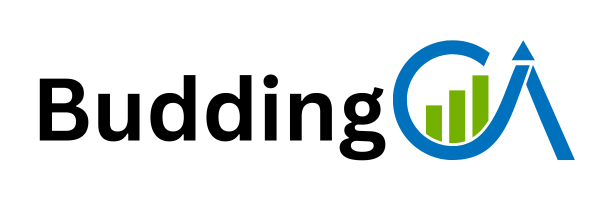Banking is one of the most sought-after career options for Chartered Accountants (CAs). With the financial sector rapidly evolving, banks are increasingly looking for professionals who bring strong accounting knowledge, analytical skills, and a strategic mindset. If you are a CA fresher aiming to break into banking, preparing well for your interviews can make all the difference.
This guide is designed to help you understand the banking industry better, prepare effectively for interviews, and confidently present yourself as the ideal candidate. Let’s dive in!
Understanding the Banking Industry: Why It Matters for CAs
Before you step into an interview room, it is crucial to have a solid grasp of the banking sector. Banks are financial institutions that facilitate the flow of money between savers and borrowers, supporting economic growth. This sector includes commercial banks, investment banks, credit unions, and more.
For Chartered Accountants, banking offers diverse roles such as:
- Auditing
- Risk management
- Financial analysis
- Advisory services
Your training in financial reporting, compliance, and decision-making makes you a valuable asset to banks, which rely heavily on accurate financial data and regulatory adherence.
Understanding the nature of banking will help you speak confidently during interviews, showing that you’re not just an accountant but a banking professional in the making.
How to Prepare for Your Banking Interview as a CA Fresher
Proper preparation can boost your confidence and improve your chances of success. Here are key steps you should take:
1. Craft a Strong Resume and Cover Letter
- Resume: Highlight your CA qualification upfront. Emphasise relevant skills like financial analysis, risk assessment, and compliance. Use numbers to showcase your achievements, for example, “Reduced audit discrepancies by 15% during internship.”
- Cover Letter: Express your enthusiasm for banking and mention specific skills banks seek—attention to detail, analytical thinking, adaptability. Keep it concise and professional.
2. Build Your Online Presence
- Create or update your LinkedIn profile with a professional photo.
- List your qualifications, internships, and relevant projects.
- Connect with banking professionals and join groups related to finance and banking.
3. Research the Bank Thoroughly
- Visit the bank’s official website to learn about its history, products, and recent news.
- Read press releases to understand its latest initiatives.
- Skim through annual reports or financial highlights to get a sense of performance.
- Know their culture and values so you can align your answers accordingly.
4. Practice Interview Questions
- Prepare answers for common questions like “Tell me about yourself” or “Why banking?”
- Use real examples from your CA studies or internship.
- Practice with friends, mentors, or through mock interviews.
5. Dress the Part
- Choose conservative, formal business attire.
- Ensure your clothes are neat and professional, reflecting the standards of the banking industry.
Key Skills and Qualities Banks Look for in CA Candidates
To stand out, you need to showcase a mix of technical and soft skills:
- Technical Expertise: Knowledge of financial reporting, risk management, regulatory compliance, and banking products.
- Analytical Thinking: Ability to interpret complex data and offer insights.
- Communication Skills: Clear and concise explanations of financial concepts.
- Adaptability: Willingness to learn and keep up with industry changes.
- Teamwork: Ability to collaborate and work effectively within teams.
During interviews, back these qualities with real-life examples wherever possible.
Common Interview Questions and How to Answer Them
Here are some frequently asked questions in fresher banking interviews, along with tips on how to respond:
- Tell me about yourself.
Focus on your CA qualification, relevant skills, and interest in banking. - Why do you want to work in banking?
Highlight the dynamic nature of banking and your desire to apply your financial knowledge. - What do you know about our bank?
Mention specific facts like recent expansions, digital initiatives, or company values. - How do you handle pressure?
Talk about managing deadlines during your CA studies or internships. - Describe a team project you worked on.
Explain your role and how you helped achieve a goal collaboratively. - What are your strengths and weaknesses?
Pick strengths relevant to banking; for weaknesses, mention how you’re working to improve. - How do you stay updated with the banking industry?
Refer to news websites, professional forums, or RBI updates. - Explain financial risk management.
Briefly define risk management and why it’s critical for banks. - How would you handle ethical dilemmas?
Stress the importance of integrity and following guidelines. - How do you manage multiple tasks?
Discuss your organisation and prioritisation skills.
Remember, tailor your answers to your experiences and be honest yet confident.
Important Banking Terms You Should Know
Interviewers expect you to be familiar with common banking jargon, especially related to KYC (Know Your Customer) and AML (Anti-Money Laundering):
- KYC: Verification process to confirm customer identities and prevent fraud.
- AML: Measures to prevent money laundering and illegal financial activities.
- STR (Suspicious Transaction Report): Reporting of suspicious banking transactions.
- PEPs (Politically Exposed Persons): High-risk customers due to their public positions.
- Wilful Defaulter: Borrowers who deliberately avoid loan repayment.
- CDD (Customer Due Diligence): Process of gathering customer information to assess risk.
- SAR (Suspicious Activity Report): Reports filed to authorities about suspicious transactions.
- AML Compliance Officer: Bank official ensuring adherence to AML laws.
- Risk-Based Approach: Allocating resources based on risk levels.
Understanding these terms demonstrates your knowledge of compliance and ethical banking.
Popular Banking Roles for CA Freshers
There are several entry-level roles suited for Chartered Accountants:
- Credit Manager: Evaluate borrower creditworthiness and manage loan portfolios.
- Treasury Analyst: Handle cash flow, liquidity, and risk related to interest and currency.
- Relationship Manager: Manage client accounts and recommend financial products.
- Financial Analyst: Analyze financial data to guide investment and risk decisions.
- Trade Finance Specialist: Support international trade financing and related risk management.
- Wholesale Banking Specialist: Provide financial services to corporate clients.
Each role offers unique responsibilities and career growth paths, often leading to positions in risk management, investment banking, or corporate finance.
Top Resources to Boost Your Interview Preparation
Make use of these resources for thorough preparation:
- Google: Latest banking news, trends, and interview tips.
- Bank Websites: Company culture, products, press releases.
- Investor Relations Pages: Annual and quarterly reports to understand financial health.
- RBI Website: Circulars, financial stability reports, and regulatory guidelines.
- LinkedIn: Connect with employees, follow company pages.
- Industry Publications: Journals and blogs for insights on banking trends.
- Glassdoor/Indeed: Reviews and interview experiences.
- Mock Interviews: Practice to improve confidence and receive feedback.
How to Find Banking Job Opportunities and Apply
Follow this step-by-step approach:
- Search for Job Openings: Use official bank websites and trusted job portals.
- Tailor Your Resume & Cover Letter: Highlight your CA skills relevant to the role.
- Apply Online: Fill in application forms carefully, upload documents.
- Prepare for Online Tests: Many banks conduct reasoning and aptitude tests.
- Attend Group Discussions & Interviews: Communicate clearly and confidently.
- Prepare for Technical and HR Rounds: Show both domain knowledge and cultural fit.
- Follow Up: Send polite follow-ups expressing continued interest.
- Prepare for Reference Checks: Keep contact details of mentors and previous employers ready.
- Accept Offer and Onboard: Complete joining formalities and training.
Final Tips to Crack Your Banking Interview
- Be Genuine: Authenticity is valued over rehearsed answers.
- Stay Updated: Follow financial news and regulatory changes regularly.
- Highlight Your CA Edge: Emphasise your strong accounting and compliance background.
- Show Enthusiasm: Express passion for banking and learning.
- Ask Questions: Prepare insightful questions about the bank’s future plans or your role.
- Maintain Professionalism: From dress code to punctuality, every detail matters.
Conclusion
Cracking a banking interview as a Chartered Accountant fresher requires more than just technical knowledge. It demands strategic preparation, understanding of the banking world, and the ability to communicate your value effectively. By leveraging your CA expertise and preparing using the steps outlined in this guide, you can confidently face your interviews and embark on a rewarding banking career.
Remember, every interview is a learning experience. Stay positive, keep improving, and success will follow.
Good luck with your banking career journey!
Calling all CA dreamers!
🔴 Are you tired of searching for the perfect articelship or job?
Well, fear no more! With 10K+ students and professionals already on board, you don't want to be left behind. Be a part of the biggest community around! Join the most reliable and fastest-growing community out there! ❤️
And guess what? It’s FREE 🤑
✅ Join our WhatsApp Group (Click Here) and Telegram Channel (Click Here) today for instant updates.




